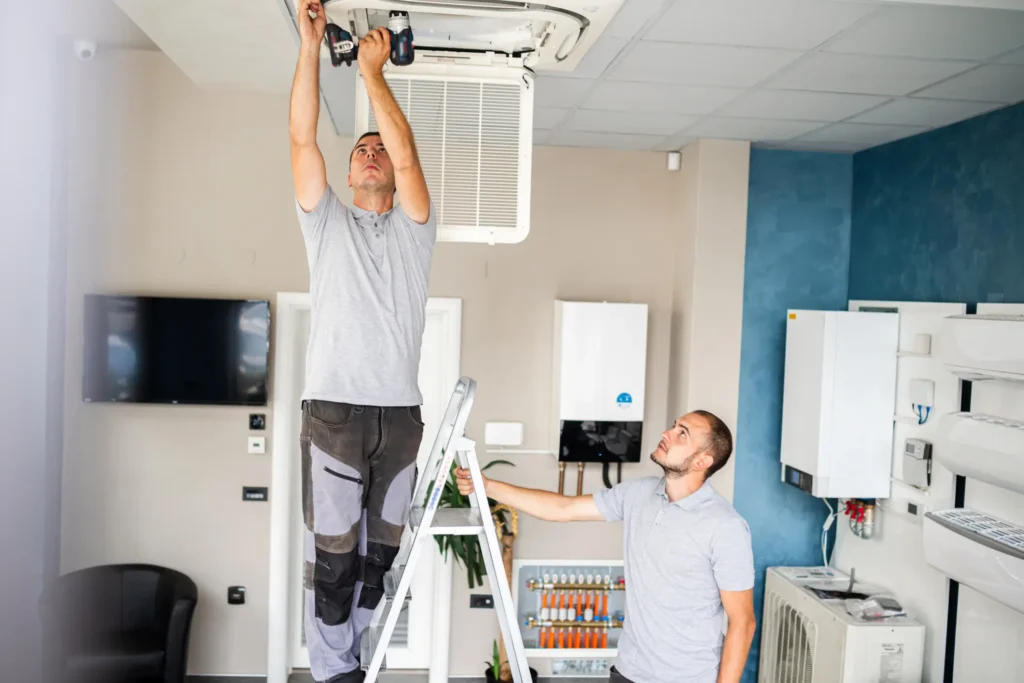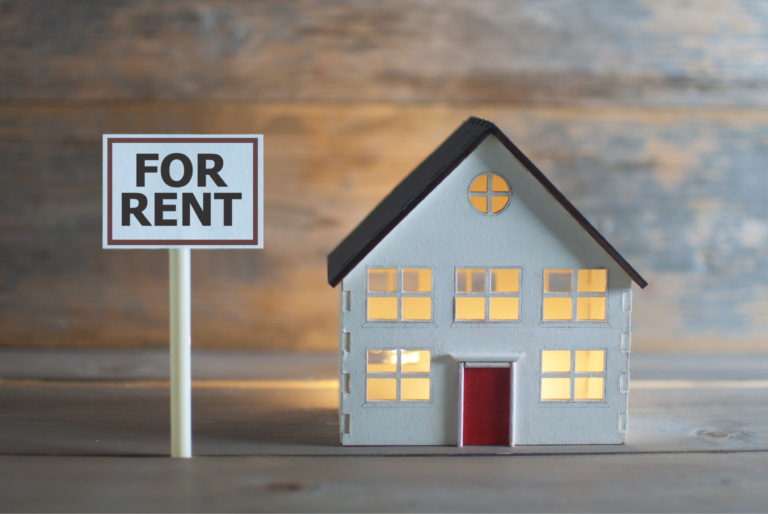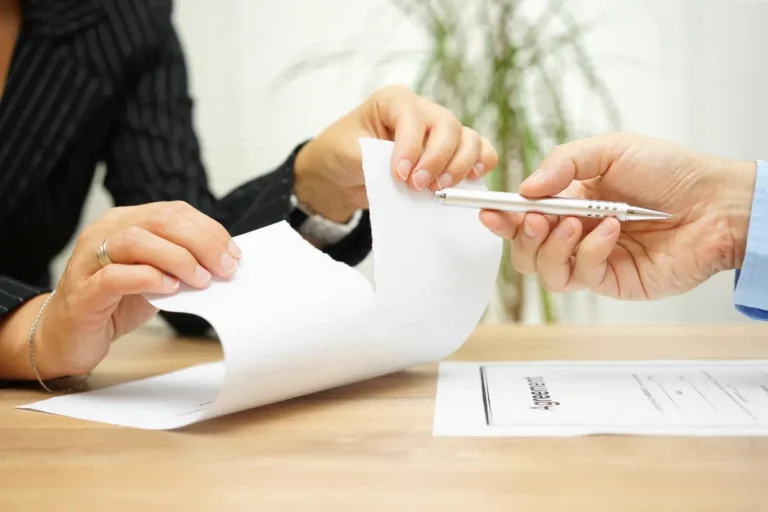If you’ve been a landlord for any amount of time, you’ve probably gotten a few “The heat is not working,” texts or calls in the middle of the night. Or maybe your tenant was calling about a leaking faucet, broken fridge, or mysterious drip coming from the AC unit. Fielding repair and maintenance requests is part of life as a landlord, but knowing who is responsible for what can save you a lot of time, money, and frustration.
In our experience, when landlords and tenants enter into a lease agreement with clear expectations around maintenance and repairs, it helps to prevent misunderstandings and keeps your rental property running smoothly. Seattle has its own set of rules and regulations when it comes to rental property repairs and maintenance, and it’s important to stay in the loop—especially as tenant protections are becoming stronger each year.
Understanding who is responsible for repairs in a rental property in Seattle helps you stay compliant and avoid costly mistakes, all while keeping your rental in good shape and your tenants happy.
Key Takeaways:
- Seattle has strict standards and it’s important to know your legal responsibilities to stay compliant.
- Landlords handle safety and structure. Heat, plumbing, and pest control are your job.
- Tenants must maintain cleanliness. They’re responsible for everyday upkeep and reporting issues.
- Good communication prevents conflict. Always document and refer to the lease.
The Legal Basics: What is Required in Seattle
Seattle has some of the strongest tenant protection laws in the county, so it’s important for landlords to understand—and follow—the local rules. Washington state law requires landlords to make repairs and maintain rental properties to ensure their properties meet the “warranty of habitability”—the legal concept that ensures landlords provide their tenants with a safe and lisable rental property. Every rental property must be safe, clean, and fit to live in.
It may sound simple, but in legal terms there is a lot that goes into the warranty of habitability—working plumbing, heat, hot water, safe wiring, a solid roof, no pest infestations, and more.
Having worked with landlords in Seattle for 16 years, we know just how seriously The City of Seattle takes these requirements. Even issues that may seem small at first—like a broken lock, small leak, or cracked window—can result in complaints if left unresolved. And because so many Seattle rentals are in older buildings, maintenance expectations tend to be a bit higher in order to meet the current standards.
Let’s dig into the specific responsibilities of landlords when it comes to repairs and maintenance.
What Landlords Are Responsible For
Seattle landlords are expected to take care of anything that affects the basic safety, functionality, or livability of the rental property. There are clear guidelines on what is considered a landlord’s responsibility, and staying on top of these tasks keeps you compliant and helps avoid conflicts with tenants down the line.
Here are some of the most common repairs and maintenance items landlords are responsible for, as outlined in RCW 59.18.060:
- Follow safety and building codes. If a problem in the rental property could affect a tenant’s health or safety, or it would be illegal under building/safety codes, landlords are required to fix it.
- Take care of the property. Landlords are responsible for keeping all elements of the property’s structure in safe, usable condition including the roof, floors, walls, chimney, fireplace, and foundation.
- Keep shared areas safe and clean. Hallways, entryways, stairwells, and other shared spaces should be kept clean and free of fire or safety hazards.
- Managing pest control. It’s your responsibility to keep your rental property pest-free. If pests show up, and it’s not the tenant’s fault, as the landlord, you’re responsible for dealing with them.
- In excess of wear. Landlords are responsible for maintaining the property in a safe and habitable condition, while tenants are responsible for damage in excess of wear resulting from ordinary use of the premises
- Install and maintain proper locks. You need to provide adequate locks and provide your tenants with keys to ensure your rental property is safe and secure. You must also keep your copy of the key in a safe location so it is not lost or misused.
- Maintain all systems. Landlords are expected to maintain and service electrical, plumbing, heating, and any other systems or appliances you provide.
- Weatherproof the property: The rental property must be properly sealed in order to protect tenants from rain, wind, and other inclement weather conditions.
- Provide water and heat. Tenants are legally entitled to adequate hot and cold water, and enough heat during the colder months.
Seattle takes these responsibilities seriously, especially during colder months when heating issues can quickly become emergencies. Being proactive not only helps you stay ahead of legal issues but can also save you money by catching small problems before they become big repairs.
Avoiding Repair Drama: Keep a maintenance calendar, schedule seasonal checkups, and respond quickly to tenant repair requests. A little planning goes a long way!
Additionally, landlords are expected to respond to tenant issues in a timely manner. According to the Seattle Renter’s Handbook, landlords must start repairs within:
- 24 hours if you are without water, electricity, or heat during the winter, or if there is a life/safety issue.
- 72 hours if your appliances are not working or you have a major plumbing issue with your sink or bathtub.
- 10 days for any other repair request.
What Tenants Are Expected to Handle
While landlords are responsible for the lion’s share of to-dos when it comes to rental property maintenance and repairs, there are some responsibilities that fall to the tenants. Their responsibilities are outlined in RCW 59.18.130 and mostly cover day-to-day upkeep and smaller tasks that don’t require professional help.
Here are some of the tasks tenants are responsible for:
- Keep the property clean. Tenants are responsible for keeping their living space as clean and sanitary as possible.
- Manage their own trash. Garbage, and food waste must be thrown out regularly and properly. If pests—like cockroaches or mice—show up because of the tenant’s cleanliness, the tenant pays for extermination.
- Use appliances as intended. Tenants are responsible for using all appliances, fixtures, and systems the way they’re meant to be used.
- Don’t damage the property. They’re expected to not damage or remove anything from the property. If damage is intentional, it could result in criminal charges.
- Maintain smoke detectors. Tenants are responsible for replacing batteries in smoke detectors and ensuring they’re working properly.
Tenants are responsible for reporting bigger issues as soon as they notice them. The sooner you know about the issue, the faster you can fix it and prevent it from becoming a bigger—more expensive—problem.
It’s all about partnership, but what happens when you aren’t seeing eye-to-eye with your tenants on an issue?
What Happens When There’s a Disagreement?
Even with an excellent lease that clearly outlines the responsibilities of tenants and landlords, repair disagreements can—and will—happen. Maybe a tenant is adamant that a repair is urgent, while you see it as routine, or they think you’re responsible and vice versa.
The first step is always to check your lease, as it should outline who handles what, and how to report problems. As you move through the process, be sure to keep everything in writing. Email and text messages protect both you and your tenant if things escalate.
Concerned parties can file complaints through Seattle’s Department of Construction and Inspections, but we believe most issues can be resolved without bringing the city into it. Open communication and prompt attention to repairs go a long way in avoiding stress on both sides.
Need a Hand with Managing Repairs and Maintenance?
Rental property maintenance and repairs is often one of the trickiest parts of being a landlord. But having a clear understanding of where responsibilities lie, ensuring you’re proactive, and keeping communication open can make all the difference.
Whether you’re managing emergency repairs or knowing when something falls to the tenant, it’s all about balancing legal obligations with hands-on day-to-day management. Whether you manage one property or several, staying ahead of maintenance protects your investment, keeps tenants happy, and helps you avoid costly issues down the road.
While repairs and maintenance are an essential part of owning a rental property, with the right property management team in your corner, they don’t have to be something you’re managing. At SJA Property Management, we take the hassle out of rental property maintenance. From handling repair requests to scheduling seasonal checkups, we help Seattle landlords stay compliant, avoid costly surprises, and keep tenants happy.
Let’s talk about how we can help you protect your investment and simplify your to-do list.
Disclaimer:
his article is for informational purposes only and does not constitute legal advice. Maintenance and repair responsibilities may vary depending on your lease agreement and local laws. For specific guidance related to your property, please consult a legal professional or contact your local housing authority.
Rental Property Maintenance FAQs
Who is responsible for repairs, tenant or landlord in Seattle?
In Seattle, landlords are generally responsible for maintaining rental properties and making necessary repairs, while tenants must cover damage they cause beyond normal wear and tear.
Can a landlord make a tenant pay for repairs in Seattle?
A Seattle landlord can require a tenant to pay for repairs only if the tenant caused the damage through negligence or misuse.
Do Seattle landlords have to pay for an alternative accommodation during repairs?
Seattle landlords may be required to pay for alternative housing if repairs make the unit uninhabitable, depending on the cause and duration of the issue.
What is normal wear and tear in Seattle?
Normal wear and tear in Seattle includes minor issues from everyday use, like faded paint or worn carpet, not damages like large holes in walls or broken fixtures.






